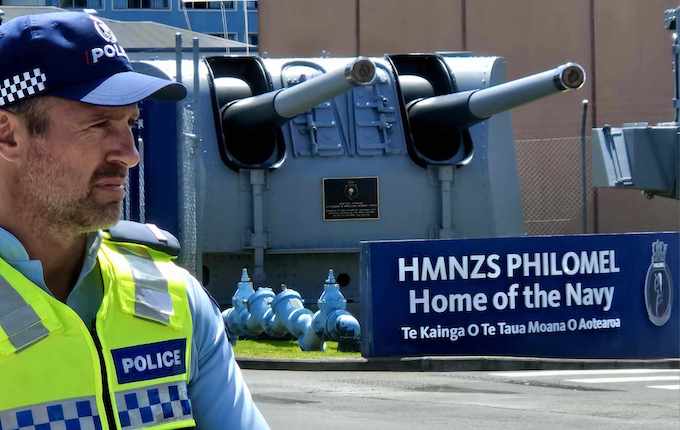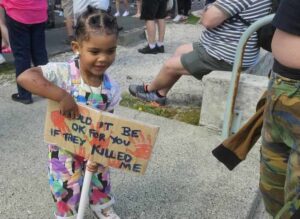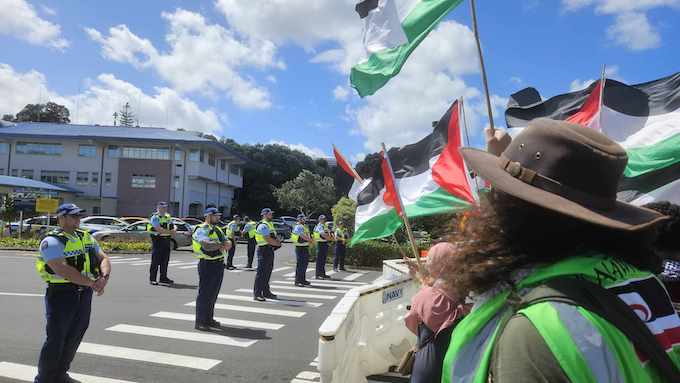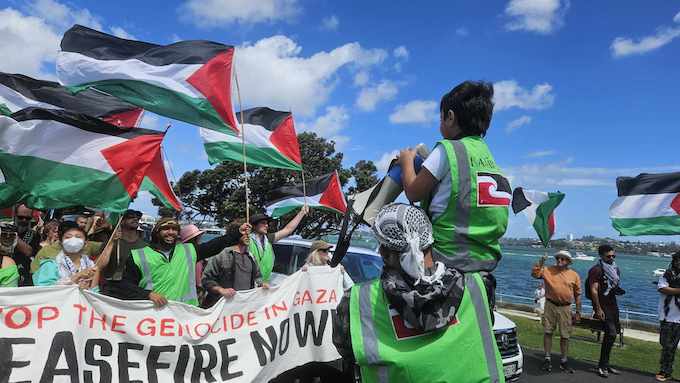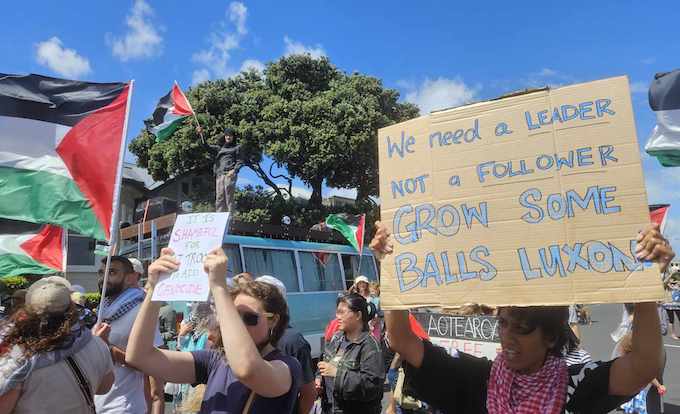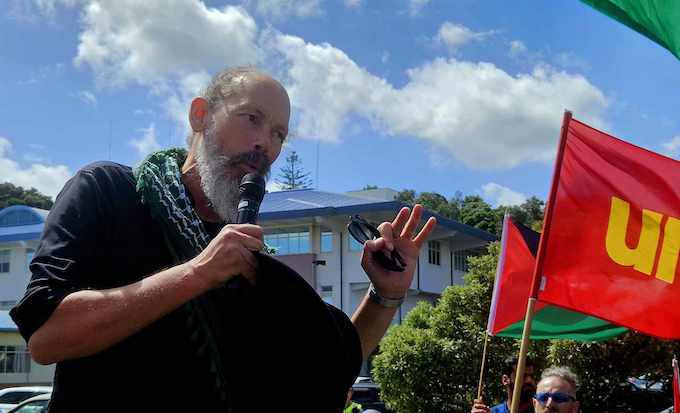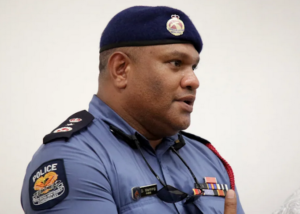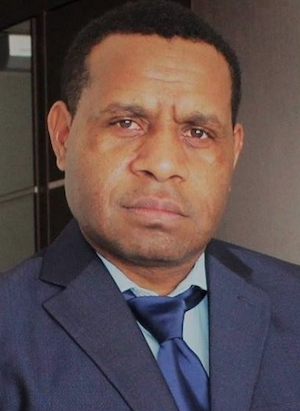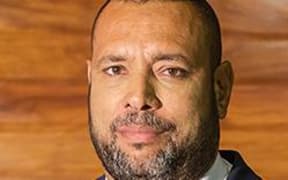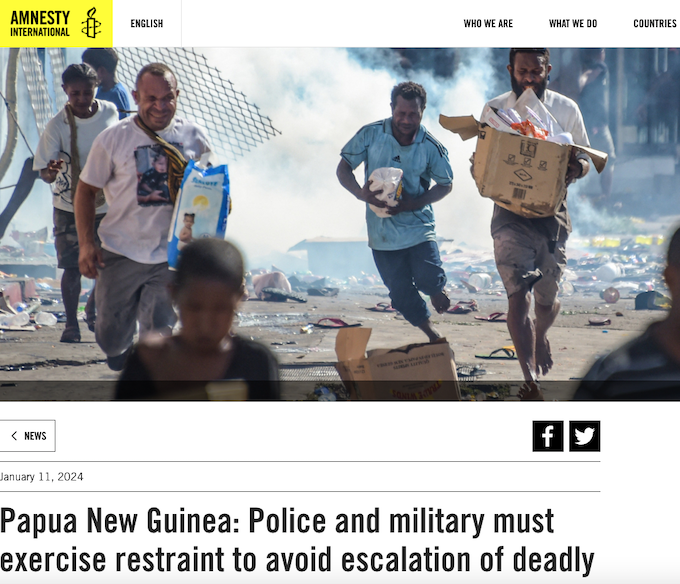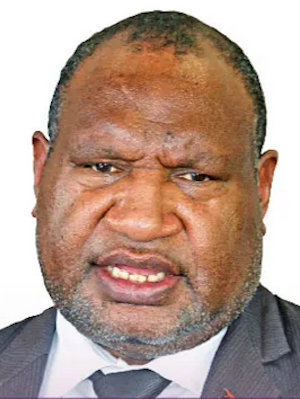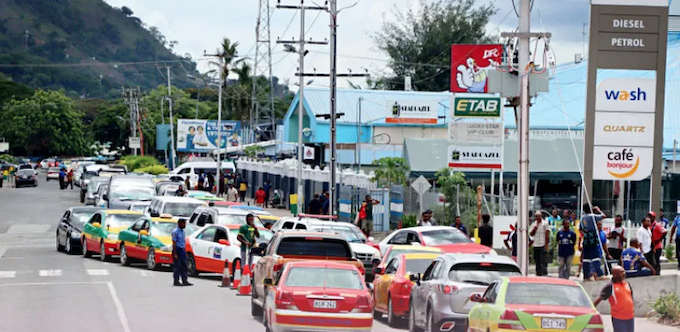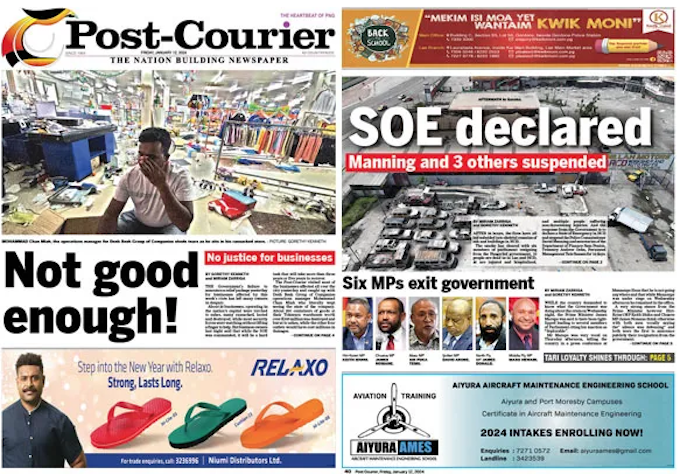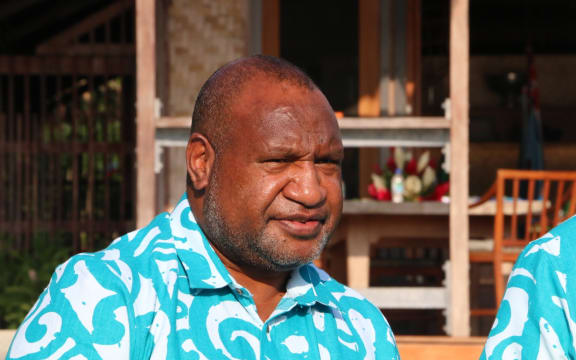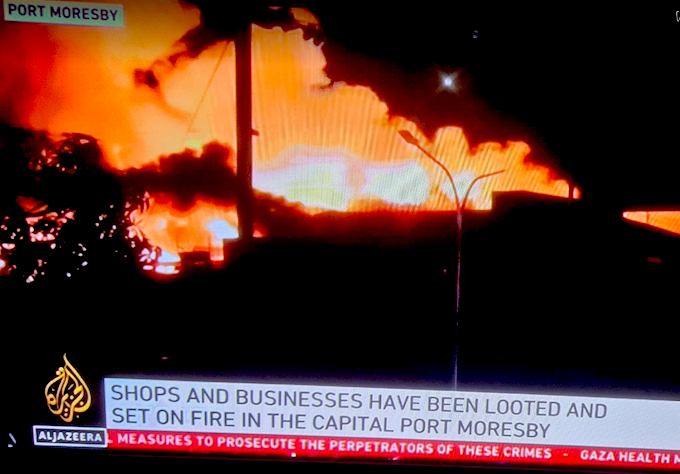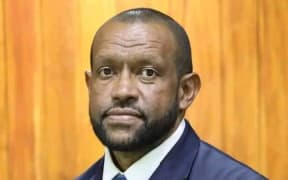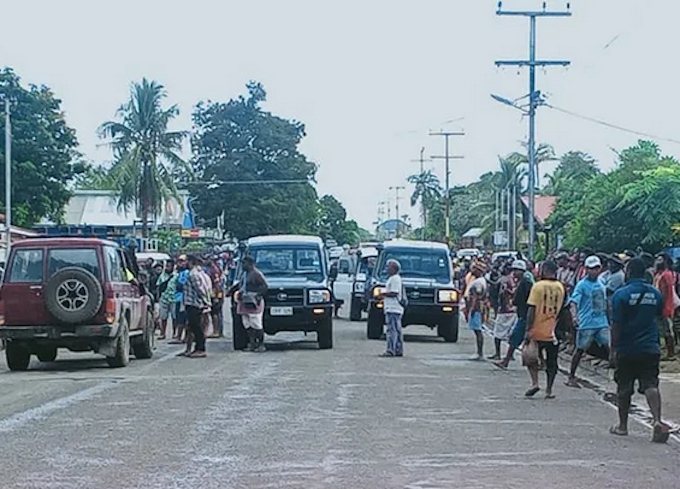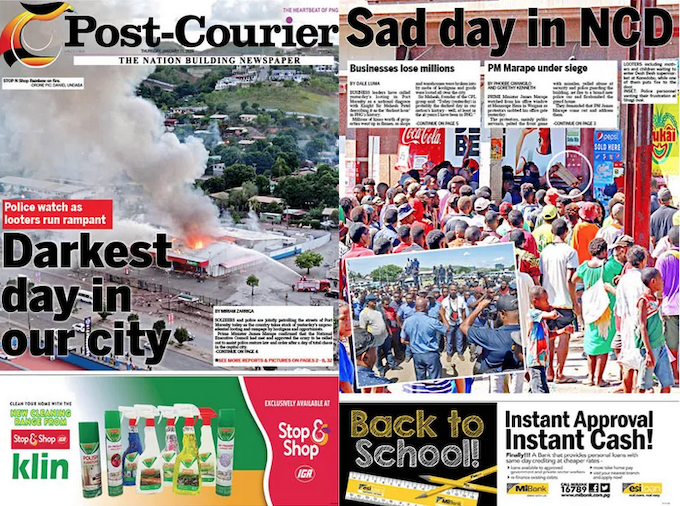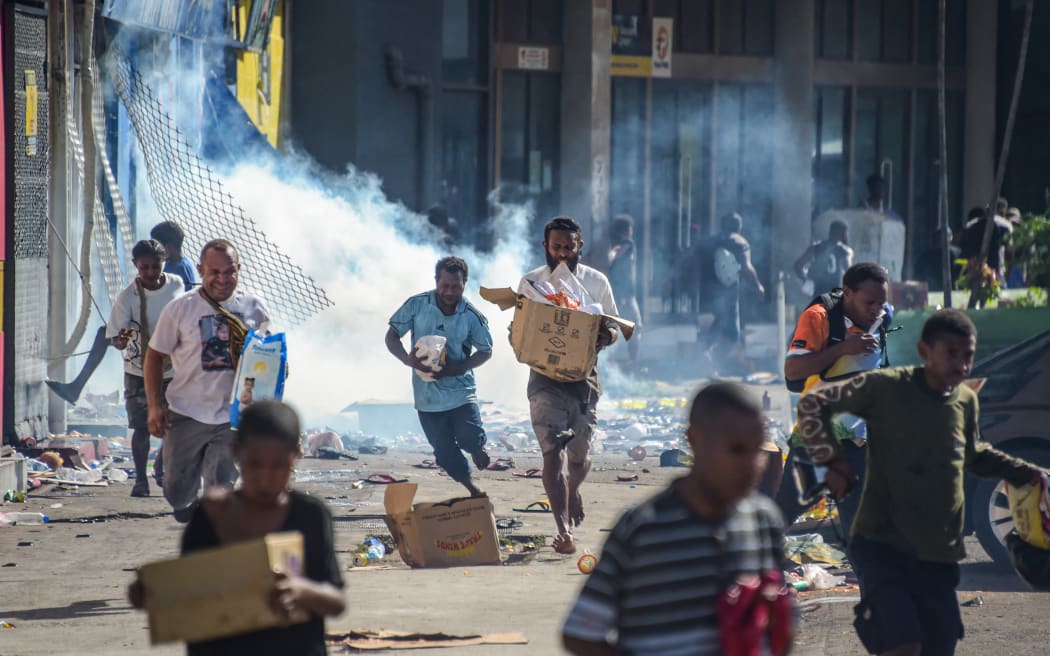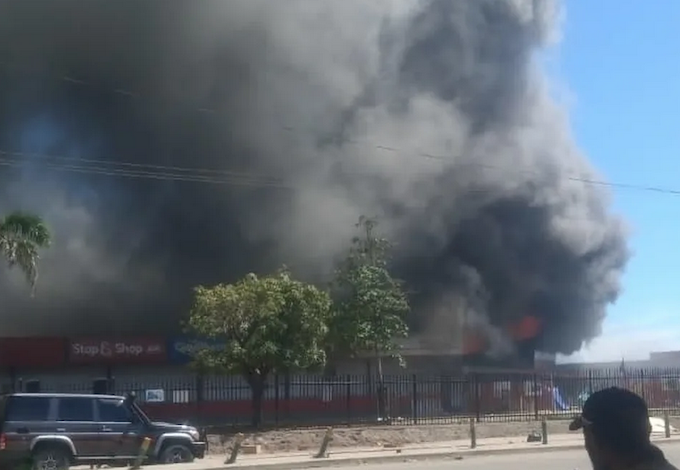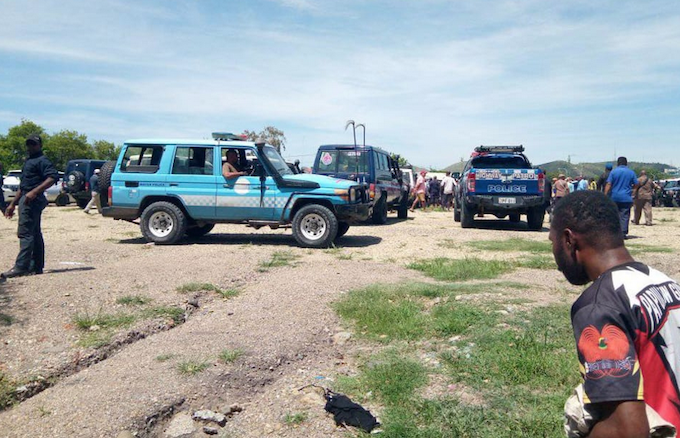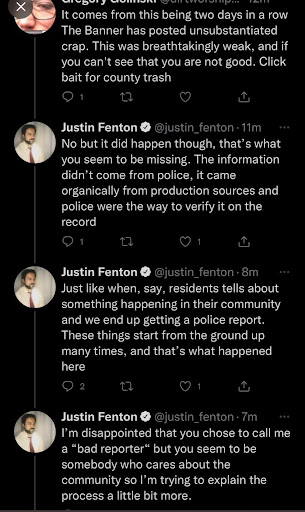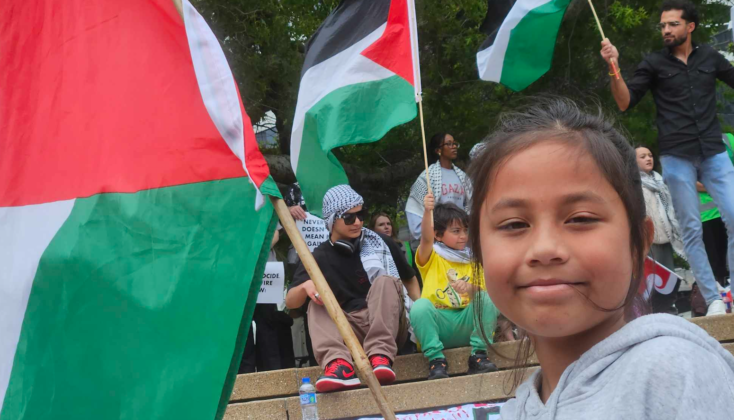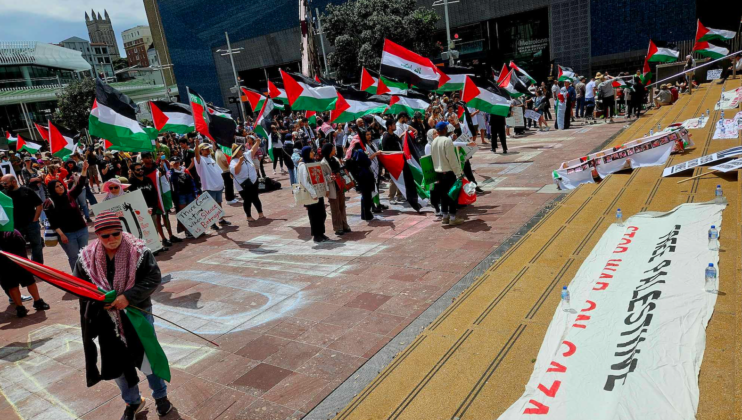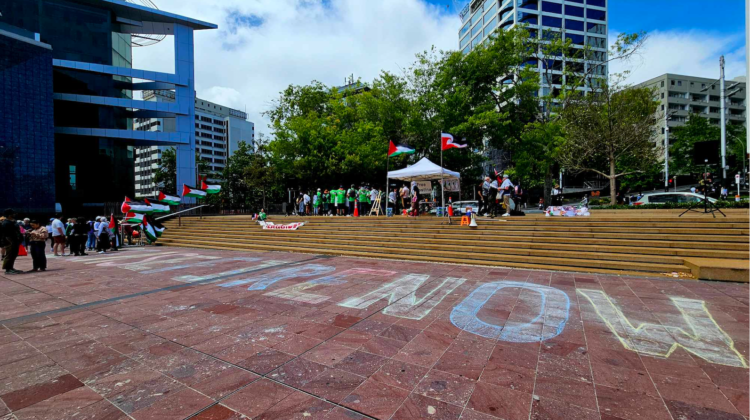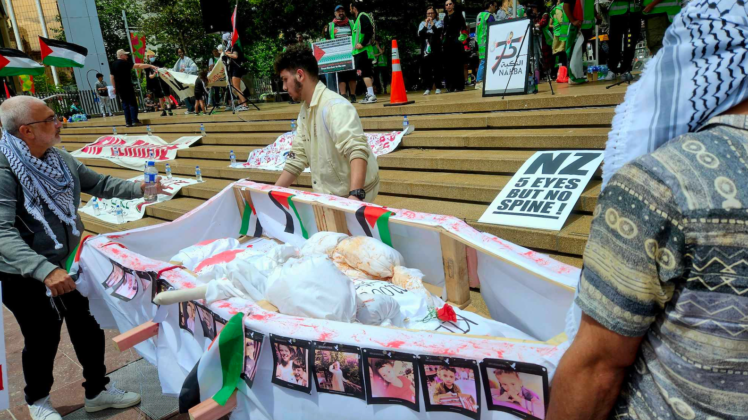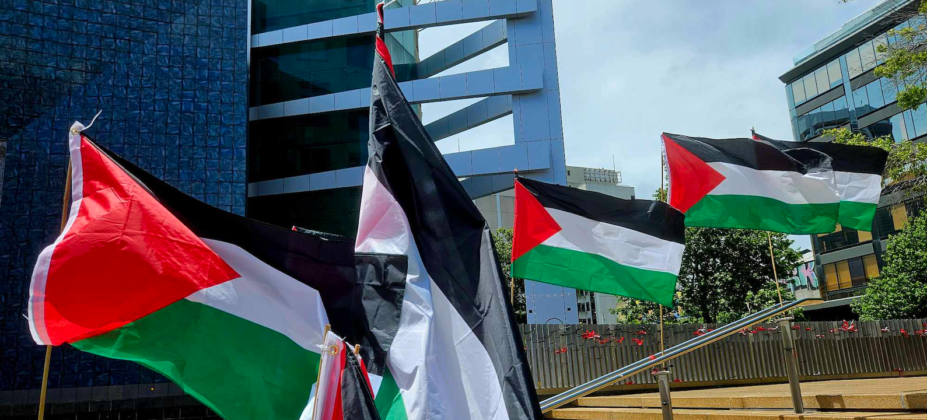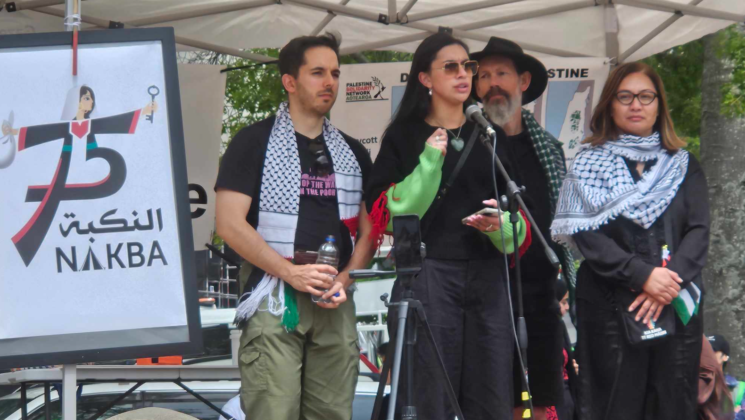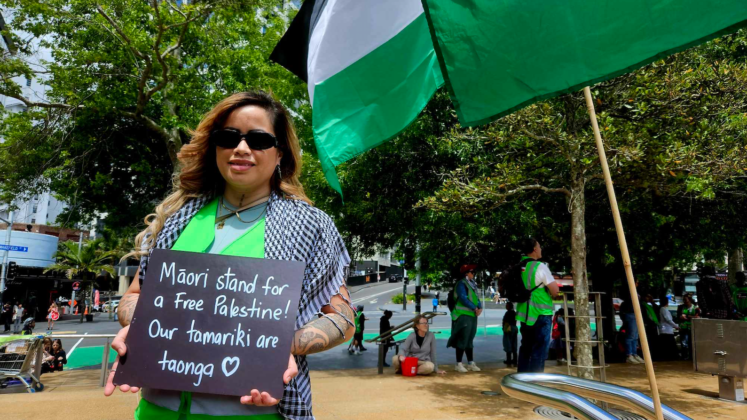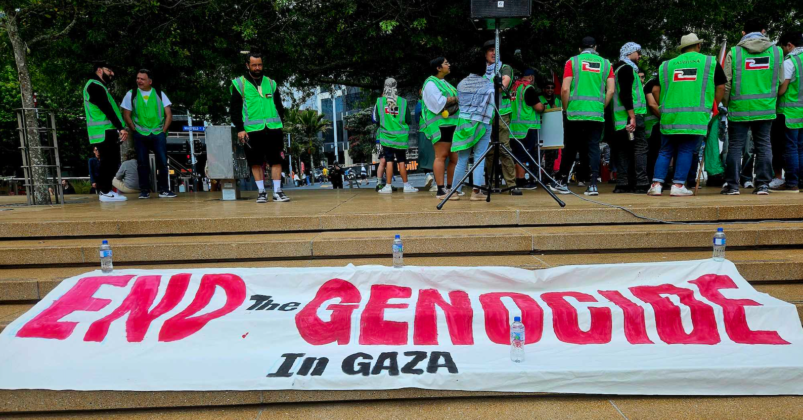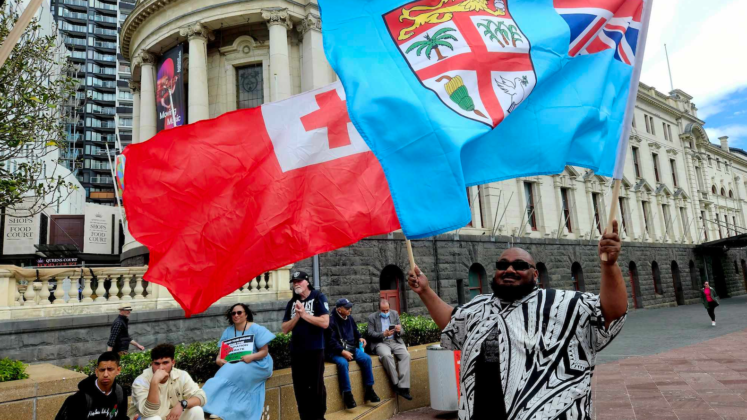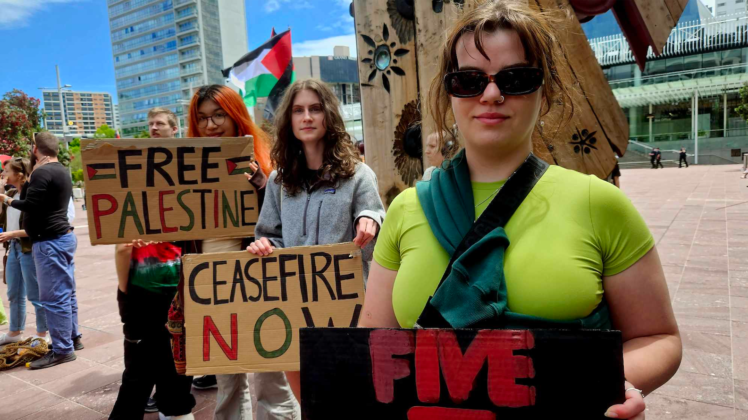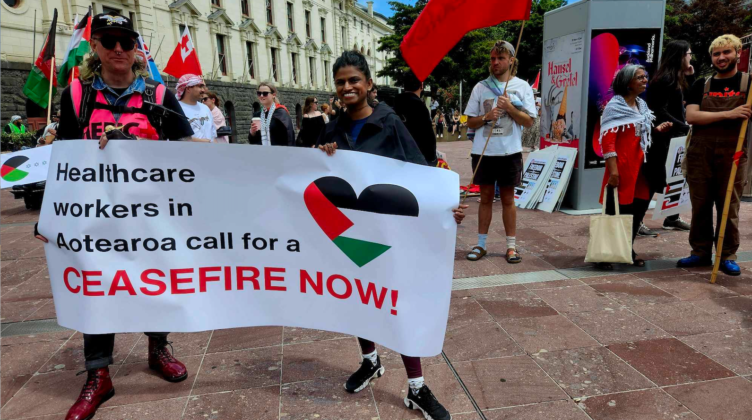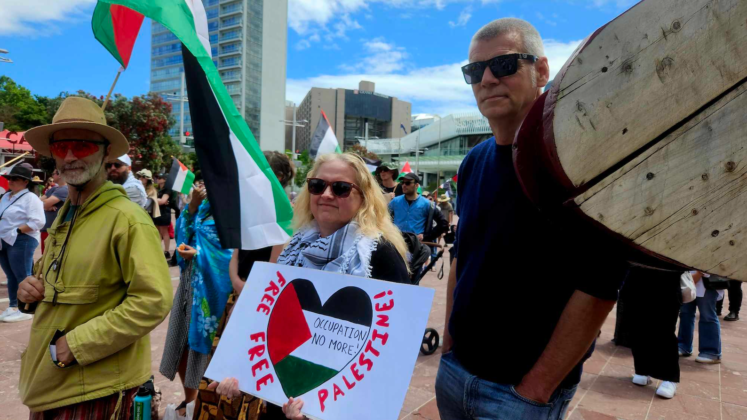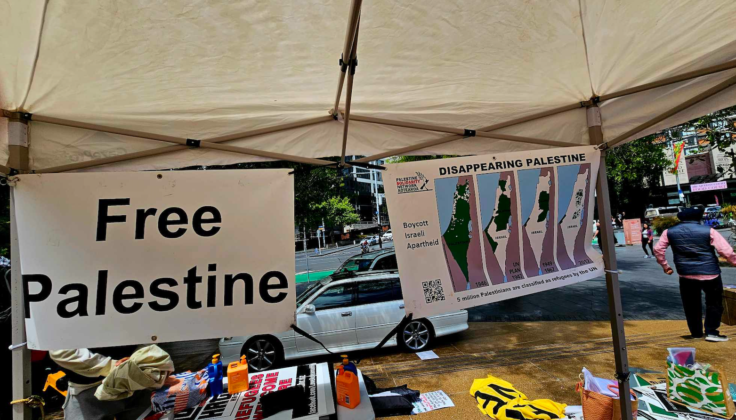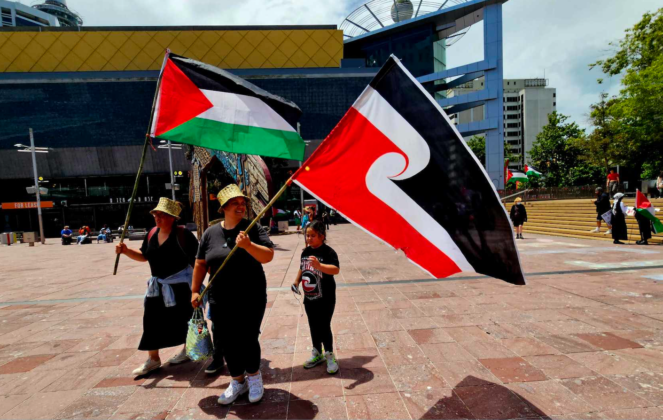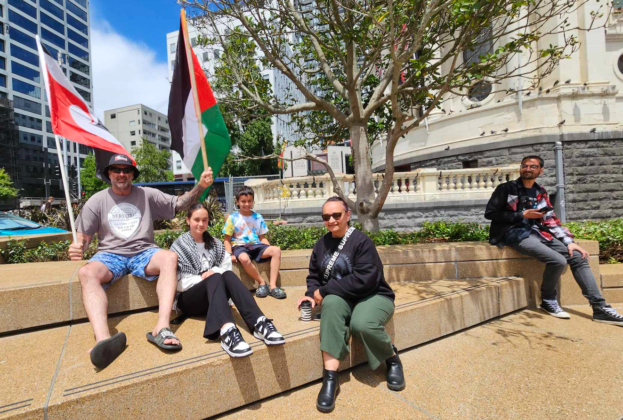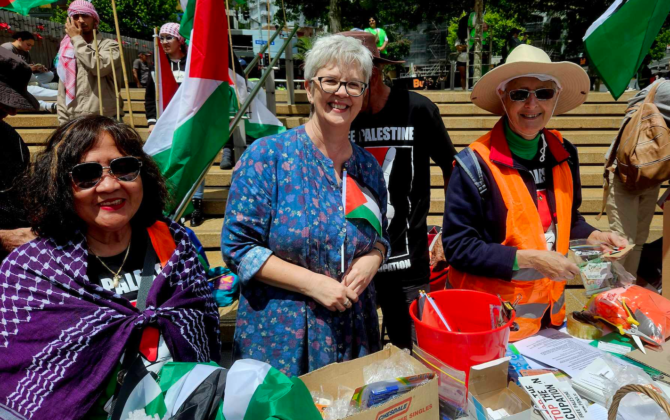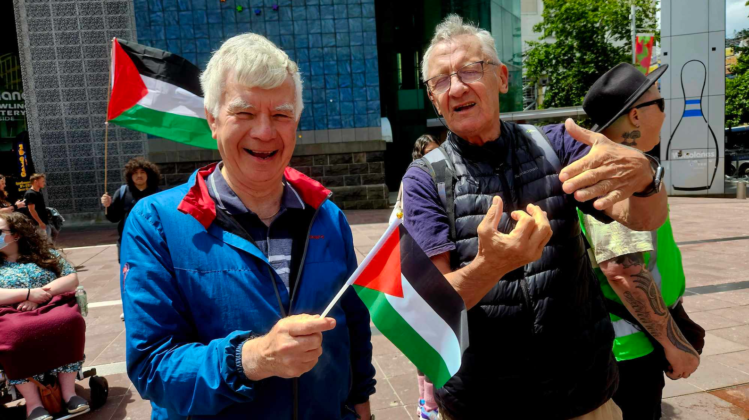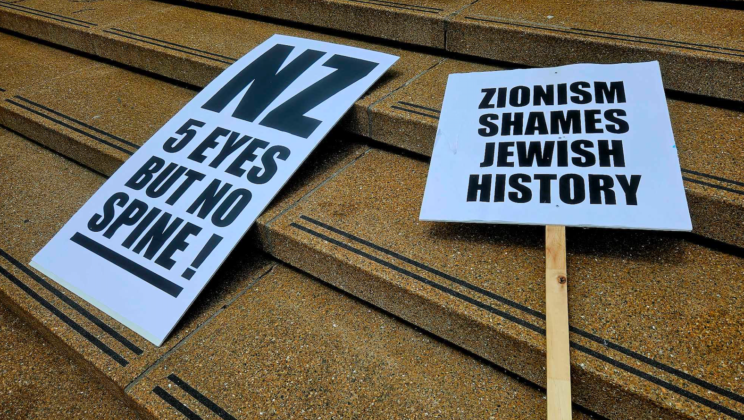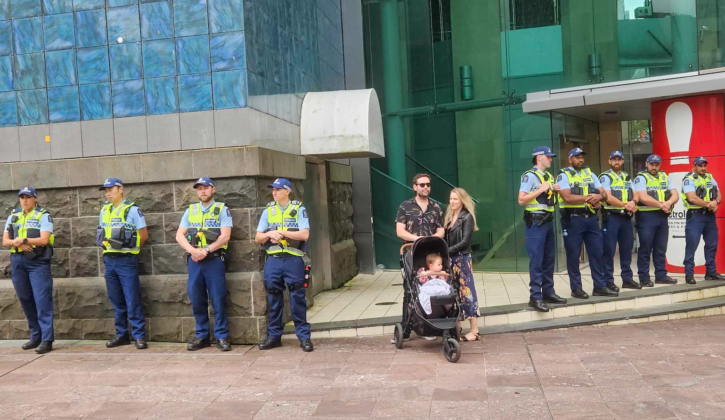This is a lightly edited transcript of “The Best of CounterSpin 2023,” originally aired on December 29, 2023.
CounterSpin231229.mp3
Janine Jackson: Every week, CounterSpin tries to bring you a look behind the headlines of the mainstream news—not because headlines are false, necessarily, but because the full story is rarely reflected there. The voices, the communities, the ideas that are not front and center in the discourse of the powerful, but could help us move toward a more equitable, peaceful, healthy communal life.
Many—most—conversations we need to have, have to happen around corporate news media, while deconstructing and re-imagining the discourse that they’re pumping out day after day.
CounterSpin is thankful to all of the activists, researchers, reporters and advocates who appear on the show. They all help us see the world and one another more clearly, give us tools to make a better future, and offer other resources once we understand that we can’t believe everything we read.
You’re listening to the Best of CounterSpin for 2023, brought to you by the media watch group FAIR.
***
Just about a year ago, lots of people were traveling, or trying to, on holiday and vacation trips. Thousands of them found themselves stranded in airports, their flights canceled, their luggage who knows where, and airlines utterly unresponsive to their complaints. Beyond chaotic, it was confusing in a country where the rhetoric is all about the customer being king, and getting what you pay for. In January 2023, CounterSpin spoke with Paul Hudson, president of FlyersRights, a nonprofit that organizes the consumer rights of airline passengers.

Paul Hudson: “The airlines, unfortunately, are only incidentally in the transportation business. They’re primarily, especially their executives, in the business of making money.”
Paul Hudson: The intention of the PPP programs and some other bailouts of the airlines, which altogether involved about $90 billion, was that you would keep the staff on the payroll so they would be ready when pandemic ended to restore traffic, and they wouldn’t have to go from a cold start.
But the airlines, unfortunately, are only incidentally in the transportation business. They’re primarily, especially their executives, in the business of making money. If that meant reducing their payroll through other means, that got around the intention of the law—and there was no real oversight by the federal government on money—that’s what they did.
And they continued to pay, in some cases, dividends. They paid large bonuses to CEOs and top executives. Some of them also did stock buybacks to keep their stock price up, while their profits, of course, were dwindling to nothing.
The reforms that we’ve been promoting pretty much have been ignored by DoT, which is the only regulator of the airline industry. And, as a result, things have gotten worse and worse.
For example, you would think there would be some requirement to have a certain level of backup or reserve capacity, for personnel as well as equipment. But there is none. There is no requirement, and some airlines actually have negative reserves. So even on their best day, they cancel 1 or 2 percent of their fights. It’s profitable to do that.
Another example is that there is no requirement that they maintain any level of customer service. Each airline sets their own goals about that, but there’s no enforcement. And they just say, “Well, I’m sorry.” They don’t answer your phones. They don’t have the personnel to do it.
And the area that’s most crucial, which is pilots: We have a shortage of pilots. Pretty much everyone agrees with that; except perhaps the pilot union, that wants to leverage the situation, says there is no shortage. But the airlines are simply not recruiting the pilots they need, and haven’t done so for years, especially for regional airlines. They don’t pay them nearly enough.
And the proposals that FlyersRights made, going back to June of this year, about 17 of them, have pretty much been ignored by DoT, at least until recently.
***
JJ: In a year that called for and saw a great deal of organized protest, one focal point was Cop City, a militarized police training complex being built on Atlanta’s South River Forest, over and against community opposition. An environmental activist known as Tortuguita was killed in a hail of police bullets, while, as an independently ordered autopsy revealed, they sat cross-legged with their hands up.
Kamau Franklin is founder of the national grassroots organization Community Movement Builders, and co-host of the podcast Renegade Culture. We talked about Cop City with him in March, starting with the history of the land itself.

Kamau Franklin: “This is a city that doubled down on police violence and police militarization after these uprisings.”
Kamau Franklin: That land, in terms of it being a forest before the invention of Cop City, was promised to the adjacent community, which is 70% Black, as a recreational and park area, particularly as the land reforested itself over time. Park areas where there were supposed to be nature trails, hiking available, parks available.
And when the idea of Cop City arose, from the Atlanta Police Department, the City of Atlanta and the Atlanta Police Foundation, all of those plans were scrapped immediately, without any input from that adjoining community. And instead they decided to move forward with this idea of Cop City.
This is a perfect illustration of how the state, vis-a-vis the city, the state government and even, in some ways, the federal government, operate in tandem. And a lot of times, most of the time, it doesn’t matter what party they are, but operate in tandem at the whim of capital, and at the whim of a, relatively speaking, right-wing ideological outlook.
And, again, it doesn’t matter which party it is we’re talking about. It doesn’t matter whether or not those folks are Black or white, but an ideological outlook that says overpolicing in Black and brown communities is the answer to every problem.
And so here in particular, you talked about the process. This process of developing Cop City came after the 2020 uprisings against police violence, the 2020 uprisings that were national in scope, that started after Breonna Taylor, George Floyd and, here in Atlanta, Rayshard Brooks were killed by the police, and it caused a massive uprising and movement across the nation again.
The response by the authorities here in Atlanta was to push through their plans on building Cop City, to double down on their efforts, again, to continue the overpolicing of Black communities, particularly here in Atlanta.
Atlanta is a city that is gentrifying at an astronomical rate. It’s gone from a 60% Black city to one that’s less than 50% in only a matter of 20, 30 years, all of that under Black leadership.
It’s a city that, in terms of those who are arrested, 90% of those who are arrested in Atlanta by the police are Black people; its jails are filled with Black people.
And so this is a city that doubled down on police violence and police militarization after these uprisings.
***
JJ: If baristas on strike were surprising, Hollywood writers on strike were downright shocking for those who vaguely imagine that these are dream jobs for which the only appropriate response is “thank you.” We got a window on a world of people who are, at the end of the day, workers, from Eric Thurm, campaigns coordinator for the National Writers Union, and a steering committee member of the Freelance Solidarity Project. He wrote an informative piece on the historic writers and actors strike for GQ. One topic we touched on was AI—not the science-y, techno aspect of it, but the power part.

Eric Thurm: “Every time technology evolves, the studios will use it as a way to attempt to cut workers out.”
Eric Thurm: Technology has been a source of struggle for decades, in particularly the Writers Guild contracts. Because, essentially, every time technology evolves, the studios will use it as a way to attempt to cut workers out, which I suspect a lot of people will be intimately familiar with. This is the business model of some of the biggest companies and most worker-hostile companies in the world.
And that dates back to when home video emerged, or when DVD box sets emerged. And part of the reason that streaming pays so little is that it was new the last time that the writers went on strike in 2007, and they agreed to have it be covered by the minimum basic agreement, but not as fully as, like, a TV network.
And so, of course, the companies exploited that as much as possible. And on some level, it’s hard to blame them, at least in the sense that the purpose of the company is to take as much value out of the workers as it can.
And this is what people are referring to when they say that the studios are really trying, as much as possible, to turn writing, but also acting, and all of the other myriad jobs that go into making entertainment that people watch, into gig work, into stuff where you just have no say in your work, and are told by this unfeeling algorithm, or app or whatever it is, what you are and are not supposed to do.
And in the context of what people like to call AI, beyond the fact that the issue with a lot of these programs is that they are trained on a lot of other people’s work—I saw someone recently describe it as, “This is just a plagiarism machine,” which I think is a very accurate description. Even in cases where it does something interesting, you can use it as a smoke screen to avoid having to credit the people that created something.
I think that’s something that we are going to see the studios try more and more, even without necessarily having AI be involved.
***
JJ: Corporate journalists still invoke, and many people still believe in, a vision of an intrepid, independent press corps that is speaking truth to power. The sad extent to which that is not true was spotlighted painfully in June, when CNBC‘s Andrew Ross Sorkin hosted a chummy interview with Chevron CEO Mike Wirth. CounterSpin heard from Emily Sanders, editorial lead at the Center for Climate Integrity and founder of ExxonKnews, who saw it as emblematic of a larger—and, let’s acknowledge, historically environmentally devastating—media failure.

Emily Sanders: “The fossil fuel industry has a long history of investing in the media in order to manipulate the conversation about our reliance on oil and gas.”
Emily Sanders: Mainstream media have had a very hard time connecting climate change to oil companies, and their decades of pollution and deception about the harms caused by fossil fuels.
And when you see coverage of deadly heat waves and wildfire smoke, for instance, there’s often no mention of things like how the major oil companies are still spending millions every year lobbying to delay the transition to renewable energy, or how Chevron, the world’s most-polluting investor-owned oil company, is currently pouring even more money into increased fossil fuel extraction and production, after making record profits last year.
So it’s also not a coincidence that mainstream media is so far behind on this. The fossil fuel industry has a long history of investing in the media in order to manipulate the conversation about our reliance on oil and gas, what needs to be done about it and what the obstacles really are to addressing climate change.
And that goes back to at least the ’80s and ’90s, when oil companies began placing ads and advertorials, or ads disguised as news editorials, in major outlets like the New York Times and the Washington Post, that downplayed the reality of climate change.
And even today, as we learned from last year’s congressional investigations and hearings into the industry’s disinformation, companies like Exxon, Chevron, BP and Shell are still running advertisements that look like articles in the country’s biggest news outlets, promoting things like algae and so-called natural gas as climate solutions. So they’ve really used the veil of journalistic credibility to help disguise their misleading and deceptive advertising for quite a while.
And we’re seeing that, not just with advertising, but with some reporters themselves still failing to name the source of climate inaction, and still unable or unwilling to recognize and call out disinformation, sometimes even parroting fossil fuel industry framing about how we can’t move off oil too quickly, or how Big Oil is working on ways to solve climate change, despite that they’re causing it, without actually challenging those misconceptions.
***
JJ: August 2023 saw the 33rd anniversary of the Americans with Disabilities Act. And Joe Biden, while acknowledging that disabled people still face discrimination, led with the sort of rhetoric that politicians and news media generally use, claiming that it’s
hard for younger generations to imagine a world without the ADA, but before it existed, if you were disabled, stores could turn you away and employers could refuse to hire you. Transit was largely inaccessible.
That rang weirdly out of touch to many, including our guest, Kehsi Iman Wilson, co-founder and chief operating officer of New Disabled South.

Kehsi Iman Wilson: “In no social movement is a victory, whether minor or major, an indicator that there need be no additional social movement.”
Kehsi Iman Wilson: In no social movement is a victory, whether minor or major, an indicator that there need be no additional social movement—or political movement, for that matter.
And when we’re talking about disability—disability rights, disability access, certainly disability justice—so much of the real, lived experience of disabled people contradicts a lot of President Biden’s opening statements.
For example, when you talk about “couldn’t imagine a world where there was inaccessible public transit”—there’s still inaccessible public transit for the majority of disabled people. And unless you’re in the privileged few who can afford paratransit services, where they’re accessible where you live, things even as basic as access to sidewalks is still a major issue.
We’re dealing with so many infrastructure issues in this country, and, as we know, any issue doubly or triply impacts disabled people.
We’ve seen, and we continue to see, a spate of laws being passed across counties, across states, making it more difficult to access the ballot box—for example, getting rid of drop boxes, ballot boxes. But when you do that, you are not only disenfranchising, effectively, large portions of people of color, of people who live in rural areas, but disabled people. And that’s not talked about.
***
JJ: Media like the Washington Post got the positive vapors this year about the scourge of “organized retail crime.” The Post called for an aggressive federal crackdown on people stealing from grocery stores, etc., even after the National Retail Federation acknowledged that the data they had put out about the impact of such theft was bogus.
If elite media cared about theft, of course, they’d be tracking a different story: companies stealing straight out of the paychecks of employees struggling to make ends meet. We talked about wage theft this fall with Rodrigo Camarena, director of Justicia Lab and Co-creator of ¡Reclamo!, a tech-enabled initiative to combat the problem.

Rodrigo Camarena: “In some sectors and industries, it’s more likely for you to be a victim of wage theft than to be paid your full wage.”
Rodrigo Camarena: Wage theft is so common and so ubiquitous that we don’t really consider it in our day-to-day lives. But, like you mentioned, it’s this huge problem. It’s actually the largest form of theft, when you compare it to burglaries, armed robberies, motor vehicle thefts combined.
And it happens whenever a worker is deprived of the wages that they’re owed lawfully. So that could mean not being paid a minimum wage, not being paid overtime, having deductions from someone’s paycheck made, or just not paying someone; they show up at the job one day and the person that hired them isn’t there anymore. Failing to honor sick leave or other benefits is another form of wage theft.
In some sectors and industries, it’s more likely for you to be a victim of wage theft than to be paid your full wage. And it’s a problem that disproportionately impacts low-wage workers, women and immigrants, and in particular undocumented immigrants, who often don’t feel like they can stand up for themselves, or request what they’re owed lawfully, because of their status.
So I think there’s a lot of misinformation about your rights as a worker that might prevent people from standing up for themselves and defending these rights, but this is part of the challenge in addressing this problem.
***
JJ: You might not guess it from coverage, but Covid-19 did not magically disappear in 2023. People continued to get sick and to die in the US and around the world. And drug companies like Pfizer continued to make hay from that sickness and death. Peter Maybarduk brought us an update in October. He’s director of Public Citizen’s Access to Medicines Group.

Peter Maybarduk: “Drug corporations have really been in the driver’s seat, working privately, secretly, on their own logic’s terms, of where they can make the most money.”
Peter Maybarduk: Pfizer has more than doubled the price of its Covid-19 treatment Paxlovid—nirmatrelvir plus ritonavir—to the US government from around $530 a course up to $1,390 for a list price now. And that despite the fact that Pfizer’s already made $18 billion off this drug in global sales. And they’re raising the price right at a time when it hurts most, because will, obviously, to fight and to fund pandemic response has diminished greatly, and the US government is transitioning its response to the commercial market.
So there’s very limited public resources now, in the United States and around the world, to ensure continuity of treatment. And in order to make up for the loss of volume, Pfizer has decided to increase prices, but that’s going to suppress demand further; that’s going to make it harder worldwide to access Covid treatment for people that need it.
In many ways, Covid-19 is a pandemic where prescription drug corporations have determined who receives what treatment or vaccine when, at least at a population level, at a sort of country-by-country level. And health agencies have been on the receiving end of that; they haven’t always known what price another country’s paying, they haven’t known what’s their place in line, the terms and conditions.
And, of course, global health authorities haven’t been able to effectively prioritize and indicate that we must prioritize population A, B and C, in these ratios, in order to end the pandemic as quickly as possible. Instead, drug corporations have really been in the driver’s seat, working privately, secretly, on their own logic’s terms, of where they can make the most money, or what public relations and pandemic concessions they want to make. And, unfortunately, that’s continuing here in this case.
***
JJ: Many people’s worst fears when they learned of Hamas’ October 7 attack in Israel have been borne out and beyond in subsequent weeks. The moment called for context— historical, social and human. But that has been largely missing, at least in most major US media. We talked about how an absence of understanding of the present impairs our ability to move forward with Phyllis Bennis, director of the New Internationalism project at the Institute for Policy Studies

Phyllis Bennis: “If we’re serious about preventing acts of violence in the future…we have to be prepared to do the hard work of looking at context.”
Phyllis Bennis: Resistance, including resistance violence, never just happens out of thin air. It happens in response to something. It happens in the context of something.
And if we’re serious about preventing acts of violence in the future, understanding the acts of violence that have already occurred, we have to be prepared to do the hard work of looking at context, looking at root causes, something that at moments of crisis— which, for Israelis, this is clearly a moment of unexpected crisis, but for people in this country as well—it’s crucial that we take those hard steps to figure out what gives rise to this. Because otherwise we’re simply mouthing platitudes of condemnation.
Condemnation of violent attacks on civilians is completely appropriate. Some of the acts of some of the Hamas militants were in complete violation of international law, and should be condemned.
And it’s also true that they didn’t just happen. They happened in the context of 75 years of oppression of Palestinians, decades of an apartheid system. The lives of the people in Gaza, the 2.2 million people who live in that enclosed, open-air prison, if you will, one of the most crowded places on the face of the Earth, have lived under a state of siege that was imposed by Israel in 2007.
So all of those things have to be taken into account to understand—not to justify, not to ever justify—the killings of civilians, the killings of children and old people; unacceptable, should be condemned; and we have to understand from where that comes, why these things happen. Otherwise, we have no basis to figure out a strategy to stop the violence on all sides.
***
JJ: And as Israel’s siege of Gaza goes on, to the increasing horror and outrage in this country and around the world, some powerful figures in politics and the press have turned their sights on those who would protest the bloodshed. The New York Times columnist Bret Stephens told readers that opposition to Israel’s violence was evidence that US progressives are, at bottom, antisemitic. Because if Jewish people oppose racist policing, for example, Black people should “trade back” uncritical support for the State of Israel.
It’s a cynical view of coalitional social movements, but there’s no reason to believe it’s going to be the vision that wins the day. CounterSpin heard a very different story from Sonya Meyerson-Knox, communications director at Jewish Voice for Peace.

Sonya Meyerson-Knox: “As long as there’s been the concept of a State of Israel, there have been Jews that have been leading opposition to it.” (image: Zero Hour)
Sonya Meyerson-Knox: The belief that none of us are free unless all of us are free, it’s not just a slogan. It’s absolutely, I think, the only way that any of us are going to have the future that we’re trying to build.
Look at all the polls, including the ones that are coming out right now. A majority of US voters, and the vast majority of Democratic voters, are all demanding a lasting ceasefire, and most of them want to see US military aid to the Israeli government conditioned, if not stopped entirely.
And yet none of that actually appears on the pages of the New York Times. It treats the Palestine movement, and those of us who stand for Palestinian freedom and liberation, as though we are somehow an anomaly, when in fact we are the vastly growing majority.
As long as there’s been the concept of a State of Israel, there have been Jews that have been leading opposition to it. The American Jewish population, let alone the global Jewish population, is not a monolith, and it never was and it never will be.
And that’s one of the things I think that makes the Jewish community so strong, is our long cultural and historical understanding of ourselves as a place that values debate and introspection and proving your sources, and then doubting them and challenging them and researching them, and coming back to the discussion and teasing things out, over and over again, along with, and this is especially important to the younger generation, I would argue, that are coming up now as young adults, the idea of social justice, of tikkun olam, repairing the world.
When I was growing up, as a kid, I thought being Jewish meant that my grandparents were union supporters and Communist activists, and I thought that’s what being Jewish was. And not everyone has that particular background, but so many of us have absolutely been raised to the idea that part of what it means to be a Jew and to practice Judaism, not just once a week or twice a week, but every day, constantly, is this commitment to trying to make the world a better place. And increasingly, like we’re seeing right now, that has to include Palestine, that has to include what’s happening to Palestinians.
***
JJ: That was Sonya Meyerson-Knox. Before her you heard Phyllis Bennis, Peter Maybarduk, Rodrigo Camarena, Kehsi Iman Wilson, Emily Sanders, Kamau Franklin and Paul Hudson.
And that’s it for The best of CounterSpin for 2023 is only a sample of the valuable conversations it’s been our pleasure to host this year.CounterSpin is produced by the media watch group FAIR, and you can find decades of CounterSpin shows and transcripts at FAIR.org. The show is engineered by Reilly Bair and the one and only Alex Noyes. I’m Janine Jackson. Thank you for listening to CounterSpin.
The post ‘We Have to Do the Hard Work of Looking at Context’<br></em><span style='color:#000000; font-size: 23px; font-weight: normal; line-height: 1em; font-family: 'Open Sans','sans-serif'; padding-bottom: -10px;'>Transcript of The Best of CounterSpin 2023 appeared first on FAIR.
This post was originally published on FAIR.





